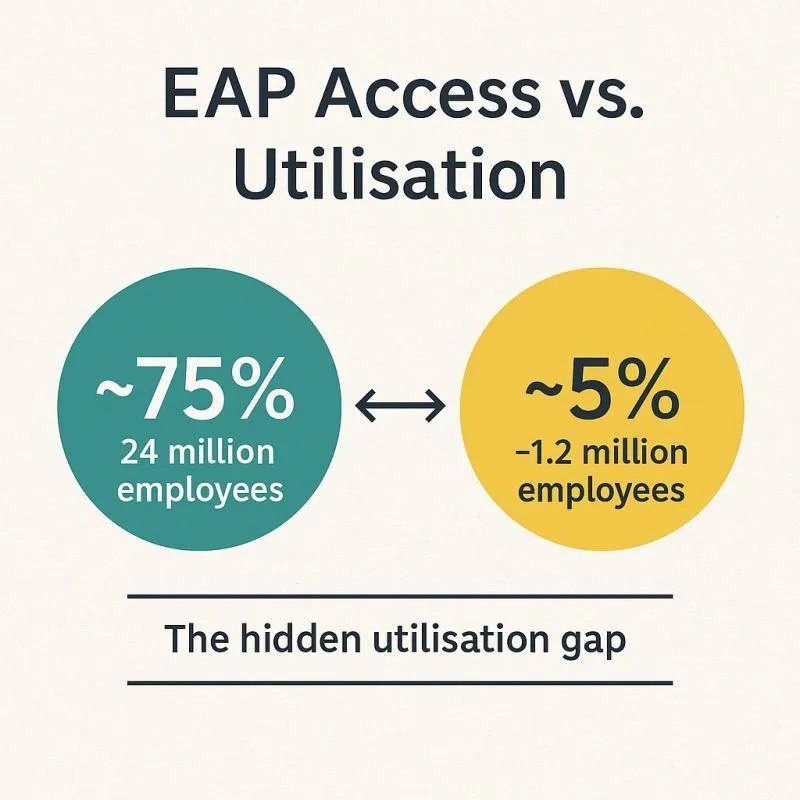
Closing the Hidden Gap: How Behavioural Insights & Proactive Care Can Unlock the True Value of Workplace Wellbeing
I was interested to note a recent LinkedIn post by Elif Oflaz, Health Psychology and Behavioural Scientist at Mercer Marsh Benefits, discussing the above.
Around 24 million employees in the UK (75% of the workforce) have access to an Employee Assistance Programme (EAP). Yet only 5% actually use it.
This means millions of employees — and their partners and dependants — are missing out on short-term counselling, wellbeing support, and other value-added services already available to them. At the same time, employers are paying for provision that isn’t fully utilised, while public health services remain under immense pressure.
This is one of the most significant hidden gaps in population health: the difference between provision and engagement.
Why don’t employees engage?
Awareness is part of the issue, but the bigger challenge is behavioural. People often need more than information to act.
Barriers include:
Perceived relevance – Benefits don’t feel useful until crisis hits.
Complexity – Multiple logins or unclear pathways discourage use.
Stigma – Mental health services are still seen as “for others, not me.”
Inertia – Competing priorities push wellbeing to the bottom of the list.
The result? Valuable resources remain unused, while employees go unsupported.
Behavioural insights + proactive partnership
As a behaviour change specialist, Elif highlighted how behavioural insights can transform engagement by nudging employees to take action, reframing support to normalise use, and guiding people step-by-step toward available resources.
But behaviour change is even more powerful when combined with personal, proactive, partnership-based care.
That’s why the P3 Business Care model is so effective. By embedding trusted wellbeing partners inside the workplace — who proactively build relationships with employees — barriers like stigma, relevance, and awareness are broken down. Employees are far more likely to open up, ask questions, and be guided toward support like their EAP when they need it.
This relational bridge increases EAP utilisation and ensures benefits already paid for actually reach the people they’re designed to help.
The business case for engagement
When employers combine behavioural insights with proactive partnership models, the results are measurable:
Boosted engagement with existing benefits
Higher EAP utilisation without extra spend
Reduced sickness absence and people risk
Greater ROI on current wellbeing budgets
Stronger retention and productivity
Benefits that truly benefit
The infrastructure for employee wellbeing is already in place. The challenge — and opportunity — is unlocking its value.
By aligning behavioural insights with proactive care models like P3 Business Care, employers can help employees access the right support at the right time, while strengthening their organisation’s culture of care.
If you’d like to explore how to close the gap between provision and engagement in your workplace, I’d love to connect.
Behavioural Insights + Proactive Partnership = Benefits that truly benefit.
About P3 Business Care
P3 Business Care help save lives! Operating across the UK and other global regions. Supporting your business every week we provide personal and proactive care to your employees and immediate family working in partnership with the company. Our Business Partners visit your business to develop personal trust & relationships so we can proactively identify and address issues before they become crisis, absence, or staff turnover. Read more about our services here